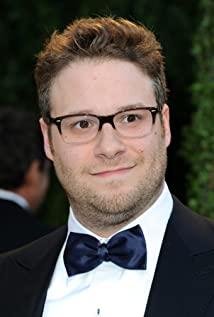Let me talk about the plot of the film first. It took me a lot of time to understand the plot. D is a "problem young man" who is incompatible with others. He often sleepwalks. When he woke up, he found himself lying in a different place. One day he was guided out of the room by a bunny man, and accidentally escaped a plane that was dropped by a plane crash. Engine, the bunny man told him that the world's limit is 28 days, 6 hours, 48 minutes, and 12 seconds. Only he can save the world. He didn't believe it at first, but later a book called "The Philosophy of Time Travel" by "Death Mother" made him believe the Bunnyman. In the meantime, he was guided to the flooded school by the bunny man and burned the hypocrite's house... On the 28th day, his girlfriend was hit and killed by a car. His mother and sister were in a plane crash. D chose to sacrifice himself to save his surroundings. People, he returned through the black hole 28 days ago, deliberately killed the aircraft engine, so time and history re-developed along a new path.
The movie is built on such a "fact" established by the screenwriter (written in the book by the dead mother): our universe is normally the original universe, and the morbid state is an offline universe, an unstable universe, this kind of accident It rarely happens, but once the offline universe appears, it can only last for 28 days. If the offline universe collapses, a black hole will form in the original universe, which will destroy all existence and cause the end of the world. In order to make up for this terrible consequence, God chose a "living recipient" (we can think of it as the savior), who needs to send the holy relics back to the original universe in order to save the world. So how can the holy objects be returned? In the film, the holy object is the airplane engine, and the living recipient is D. When D is killed by the airplane engine, the holy object is sent back and the world is saved.
When reviewing the movie for the second time, I always wanted to define the feeling it gave me. In the end, I thought I should call it "youth", full of sadness and confusion, full of dreams and paranoia. On the surface, it is a science fiction thriller film, but in essence it is a realistic theme. In fact, I can empathize with some of the things that happened to the actor D. For example, D was asked by the psychologist "Do you feel lonely now." He replied that I hope I am not, but I have no evidence (to prove that I am lonely or not. Loneliness), so I don't think about it anymore, that's ridiculous. ------When I saw this, I suddenly realized that I was texting with Douzi saying that people are lonely and extreme. I asked myself if I was lonely. Yes, many times I am lonely, but I also have friends and family. Moments of bliss; and life is often like an illusion, but is it all like an illusion? How can reality be defined like a mathematical formula, please be clear (this is also the brilliance of the title, the illusion of death, when it comes to death, what is to be alluded to is D's entire youth life)? In this way, everything is messed up, and there is no "evidence" for everything. This is our youth that is lost because of being too serious.
I used to have this feeling: I feel that there are many unsatisfactory and unreasonable places in reality, or there are many unreasonable rules that have been set. Everyone is doing this. I want to reform it, but often I can’t find it. To replace it with a more reasonable and more immediate way, the most important thing is that everyone is doing this, and I will definitely be isolated if I want to change. This is a dead end and it is difficult to find an exit (this is often something that people with a lot of youth dare to do).
In the film, D obviously also encountered such a problem. His enlightened English teacher taught them to read a book called "The Destroyer", about a group of children flooding a house and burning the money from it. D understands that destruction is another mode of creation, they just want to see See what will happen to destroy the world. In the subsequent plot, D flooded the school, arguing and insulting the teacher because he believed that the lifeline was more than fear and love, and mocking the hypocritical writer Guo Zhan and burning his family... Obviously he was practicing the sentence that destruction is creation It is transformation. It's a pity but inevitable that D's actions didn't help. He insulted the teacher and was banned from extracurricular activities. The flooded school caused the enlightened English teacher to be fired. Guo Zhan's family was burned and Guo Zhan was arrested for publishing obscene books. It is not the result that D wants, and the world has not changed substantially. Those old things that D thinks are unreasonable are still there and will continue to affect generation after generation. This is like what the last song of the film sings: It’s a " Mad World.
Although the way of thinking is different from others, D is still an ordinary young man of flesh and blood. The director expresses it in D's love for the opposite sex. One is that D was hypnotized by a psychologist for the first time. D said that he had a sexual desire for the opposite sex and even wanted to masturbate. This was normal in adolescence; the second was that D was brave to pursue a girl, which was quite interesting.的:
----you want to go with me? I mean, like,"go" with me.It's what we call it here.
---- Sure.Because of
D's death, the world is saved, but I don't He thinks that D is a hero or a tragic person. He chose to die just to save the person he loves. He does not have the compassion of Puji throughout his life. After all, he is just a young man, a maverick and perplexed young man. In the last letter to the dead mother-in-law, he wrote,...I only hope to get the answer in my dream...I still have too much hope...
D died, and the time started again 28 days ago. Everything that D did in these 28 days became blank, like an illusion: there was no flooding of the school, no fire to Guo Zhan’s house, even his girlfriend could not remember him. . The world will still follow the established rules and orbits. No boy will confidently say to a girl, "People will understand me, and the world will change." There will also be no girl who praised a boy and called "you are weird." The 25-year-old screenwriter and director of the film had just graduated from university for a year and a half when he made this film, and bumped into walls during the filming. I think he is taking this film to commemorate his passing adolescence. I think his youth must be full of rebellion and confusion. Only when he really grows up can he understand the survival of the fittest, and understand that changing the world is not as simple as imagined.
View more about Donnie Darko reviews











